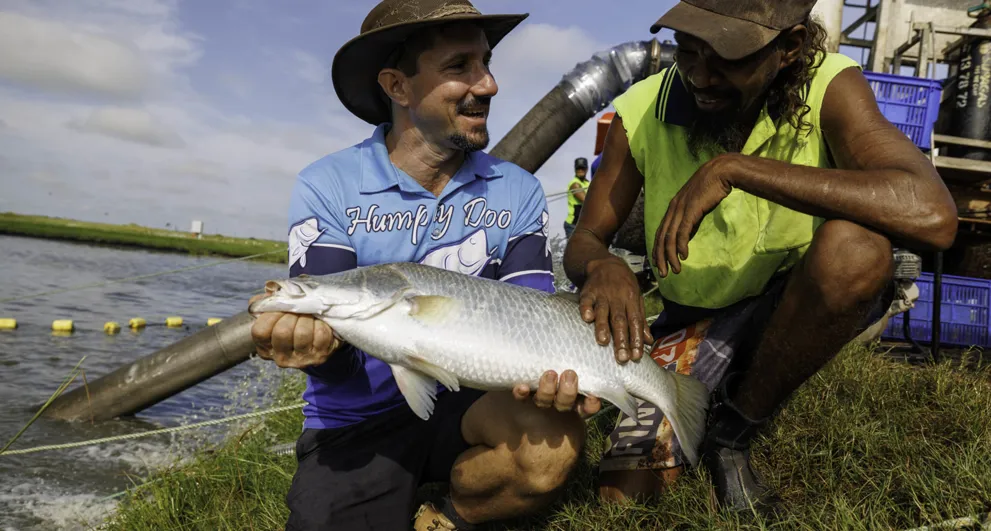- Our Investments
- Indigenous Outcomes
Indigenous Outcomes
NAIF recognises the special relationship between First Nations people and country throughout northern Australia and acknowledges the continuing connection to land, waters and culture - continuing to pay our respects to Elders past and present.

First Nations peoples have a major presence in northern Australia, representing 14% of the total population compared to 3% nationally, with approximately 78% of northern Australia subject to Aboriginal Land Rights or Native Title.
Finding equitable and sustainable ways to involve northern Australia’s growing First Nations population in development opportunities will be crucial to driving growth across the region. The First Nations population is a key part of the workforce, and First Nations businesses play an important role in industry supply chains.
Indigenous Engagement
Watch our Indigenous Engagement Video to learn about the pillars underpinning the Indigenous Engagement Strategy. From tailored employment pathways to supporting First Nations businesses, see how this approach can improve outcomes for First Nations people.

Strategy Guideline
Explore our Indigenous Engagement Strategy (IES) Guideline, along with other resources designed to support NAIF proponents in developing and implementing their IES. The intent of the IES is to transform good intentions into a clear, culturally appropriate, locally contextual plan with measurable commitments.

Strategy Toolkit
Our IES Toolkit is a valuable resource to help proponents develop their IES. Use this toolkit to help shape and carry out your Indigenous Engagement Strategy, ensuring it fits your specific project and goals.

Reporting
All proponents applying for NAIF financing are required to report progress against their IES commitments at regular intervals. The Indigenous Outcomes team supports proponents with IES delivery by providing guidance, establishing connections, and ensuring reporting requirements are met.

Reconciliation Action Plan
We are committed to supporting Australia’s First Nations community by promoting awareness of Indigenous culture and issues among our employees and taking steps to support the reconciliation effort. Find out more about our vision for reconciliation by clicking the link below.
Partnerships
We facilitate key relationships with stakeholders and drive connections across agencies and organisations to increase opportunities for greater Indigenous outcomes across the north.
To discover more about our ongoing partnerships and the organisations we work with, we invite you to visit our Key Partners page.
Find out more
Whether you're interested in understanding our investment process, exploring the Investment Act and Mandate that guide our decisions, utilising our Indigenous Engagement Strategy Toolkit, or seeking answers to frequently asked questions, we've got you covered. Click on our quick links in this section to discover more about our mission and impact.